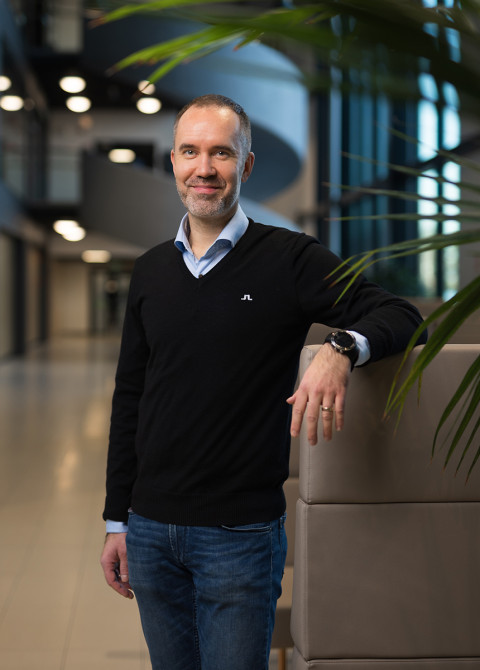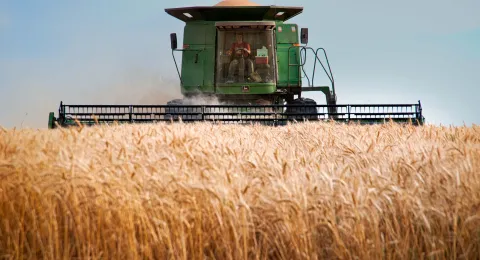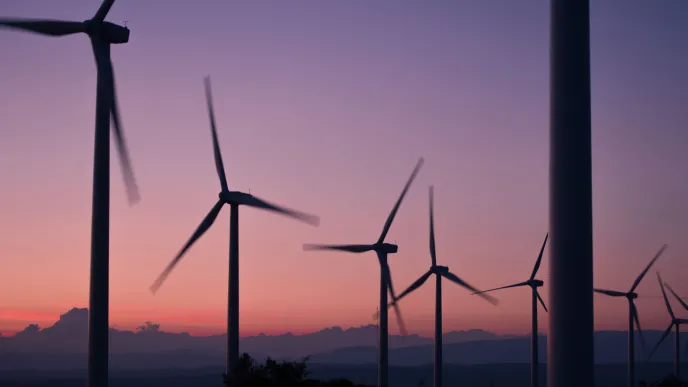Daily nourishment is a human necessity. A global food system has been created to ensure the availability of food and regulate food production, refinement, delivery and consumption. Nevertheless, the system involves an innate paradox: we cannot stop food consumption, but the system that enables consumption in its current form is not sustainable.
Climate change-related sustainability issues are escalating to the extent that they’re endangering food security.
”To ensure food security also in the future, we need technological and social innovations in food production, distribution and delivery,” says Antti Puupponen, a university lecturer in social sciences. Puupponen specializes in food production.
What does food security mean?
The UN defines food security as physical, social and economic access to sufficient, safe and nutritious food that meets a person’s dietary needs and food preferences for an active and healthy life.
Although global food production is sufficient in relation to the world’s population, as many as 700 million people remain without food security altogether.
“Especially in low-income countries and Sub-Saharan Africa, large numbers of people don’t have access to enough food. The uneven distribution of food is one of the basic problems of the food system,” Puupponen says.
Finland tops global food security indices. However, Puupponen points out that even in Finland, food security falls short of perfection.
“We also have population groups with decreased food security because the quality of the food they consume isn’t high enough. This exacerbates inequality – similarly to the energy crisis. The surge in energy prices had the greatest impact on low-income households. The same applies to food security.”
Climate change and food security are intertwined in many respects. Climate change weakens the conditions for food production – especially in areas with already challenging circumstances. Moreover, emissions from food production should be decreased to help our planet withstand its load.


Why is it important to protect food security?
“It’s a human rights issue,” Puupponen states.
Puupponen says researchers who have studied changes and crises in the food system have been able to pinpoint critical junctures that have led to food system crises. One such point in time was the Great Finnish Famine of the 1860s. Subsequently, industrialization started to gain ground and food production gradually commercialized.
The food system has long leaned on fossil capitalism, which requires fossil fuels for food production. Climate change has flung the system into a crisis, as the large-scale use of fossil fuels can no longer continue.
“Changes triggered by the food system crisis don’t affect all population groups equally. In the worst case, the crisis could instigate a humanitarian disaster, famine and starvation in certain parts of the world.”
From the Finnish standpoint, the looming catastrophe may seem distant. Nonetheless, the crisis may decrease food import and increase the significance of local food production even up north.
What is LUT University doing to improve food security?
LUT’s perspective on the food system and, consequently, on food security is comprehensive. Social sciences examine food production from the viewpoint of societal structures, politics and geographical regions. Different fields of technology tackle production and related innovations in practice.
For instance, LUT’s energy technology researchers have collaborated with VTT on a research project that yielded Solein, a nutritional protein out of thin air – literally. The protein’s raw materials included carbon dioxide captured from the atmosphere, and the production process ran on electricity. After the research project, the development of Solein has continued in the spin-off company Solar Foods.
According to Puupponen, important technological innovations need to go hand in hand with social innovations that guarantee follow-through, such as the equitable division of food. Social innovations emerge when the dialogue between fields of science is efficient.
“One such innovation are, in fact, Finnish school meals. They combine food security with the socio-political dimension. Children and youth in Finnish schools all have access to a free meal from Monday to Friday – regardless of their social status,” Puupponen says.





